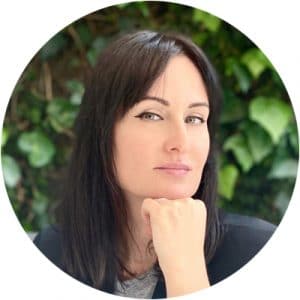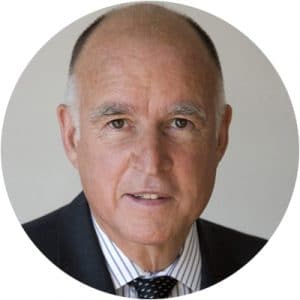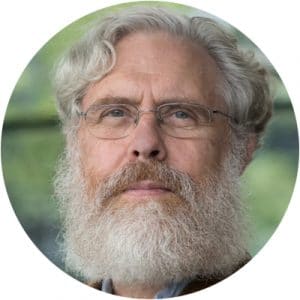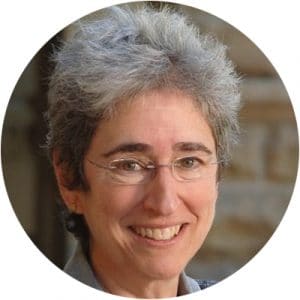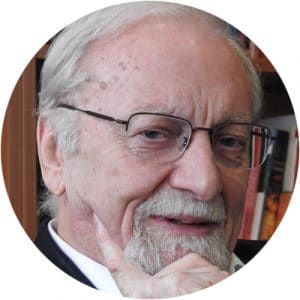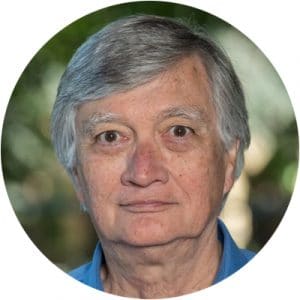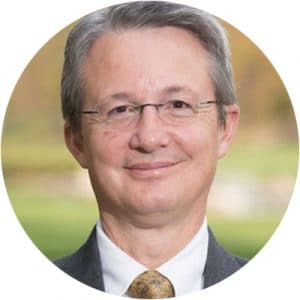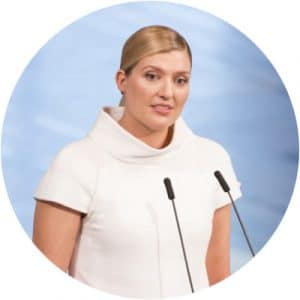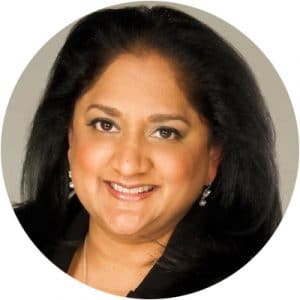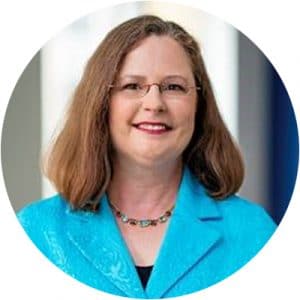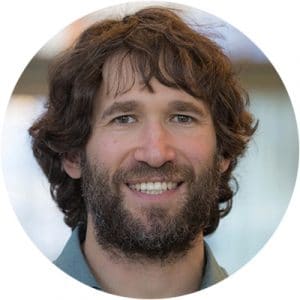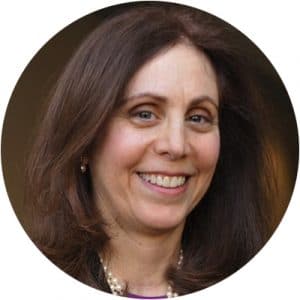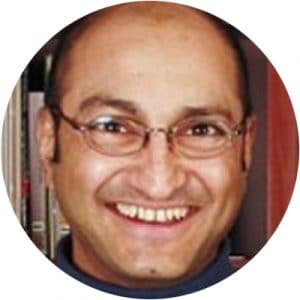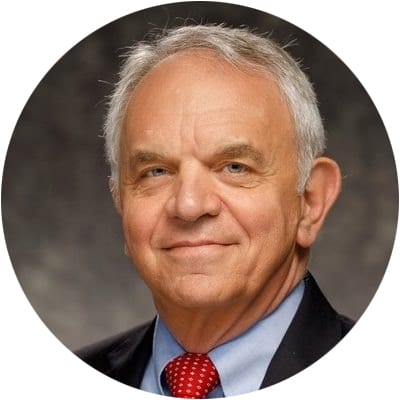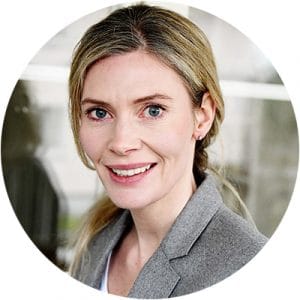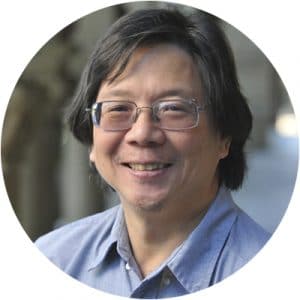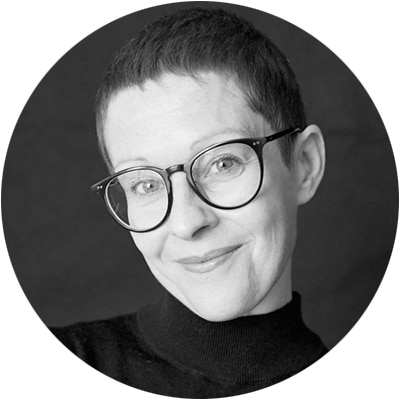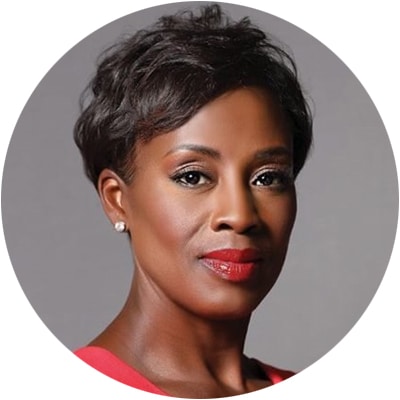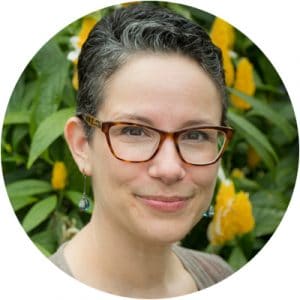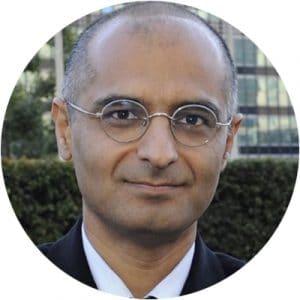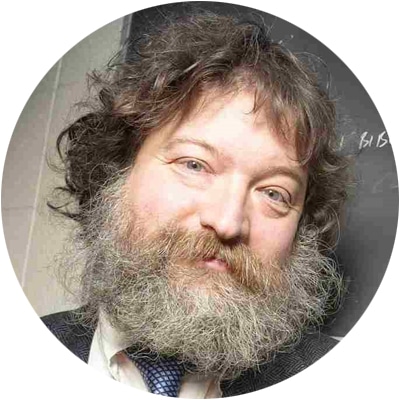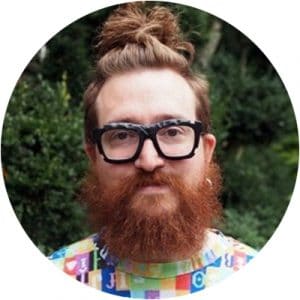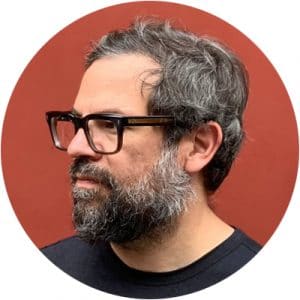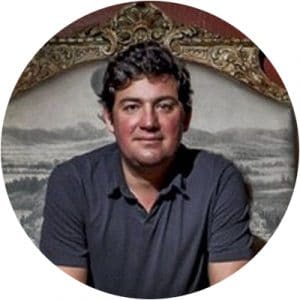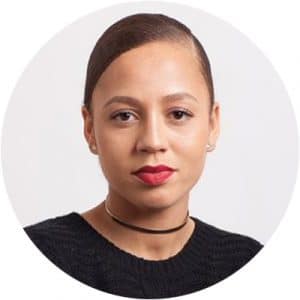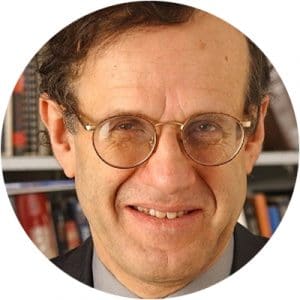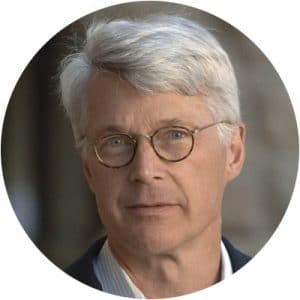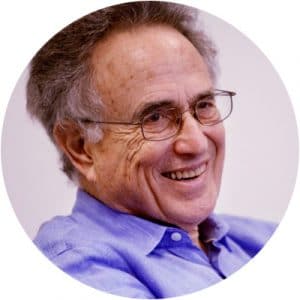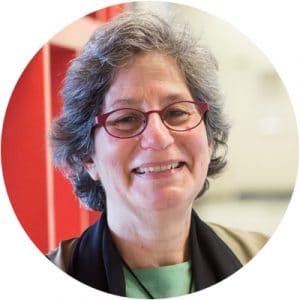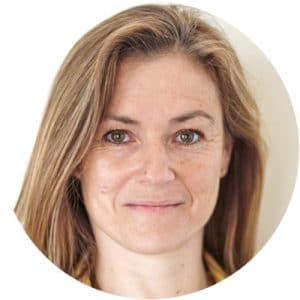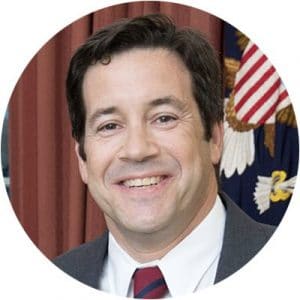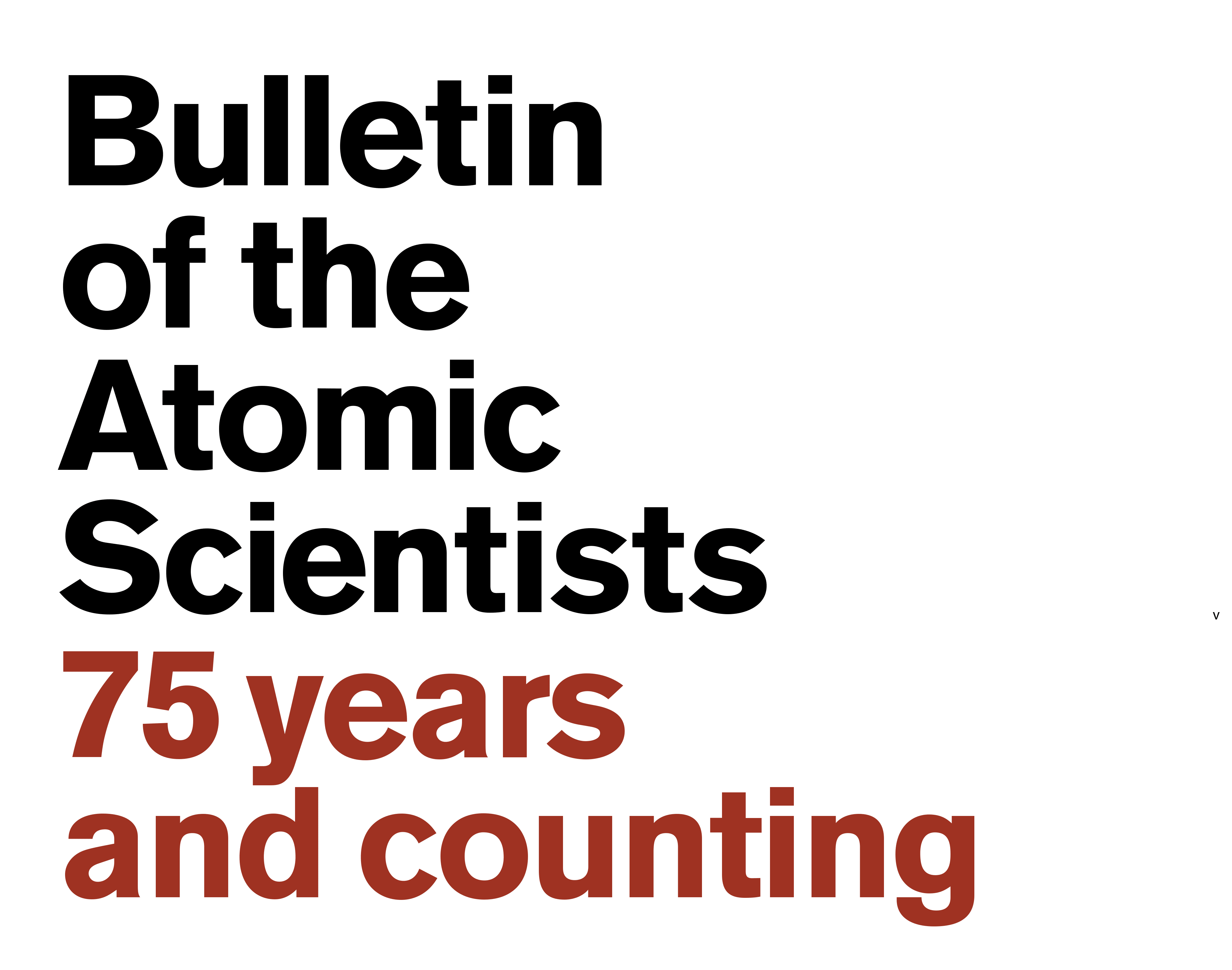
November 12, 2020
75th Anniversary Dinner
The Bulletin's anniversary dinner was an interactive virtual experience! Guests were immersed in small “virtual tables” for conversations with leading experts in the fields of nuclear risk, climate change, and disruptive technologies.
Did you miss the conversations? Watch the videos from the main program, and we'll see you next year!
2020 Provocateurs
Lesley Blume nuclear risk
Award-winning journalist, historian, and New York Times bestselling author Lesley Blume has documented seminal moments in the careers of Jackson Pollack, Truman Capote, and Ernest Hemingway, among others. On August 4th, in time for the 75th anniversaries of the atomic bombing of Japan, Blume published her newest book, Fallout: The Hiroshima Cover-up and the Reporter who Revealed it to the World. In it, she turns her journalistic prowess to the pivotal role John Hersey played in shaping global understanding about the effects of nuclear weapons. Interested in discussing how one heroic scoop can save the world? Invite Lesley Blume to your table.
Governor Edmund G. “Jerry” Brown
Edmund G. “Jerry” Brown served as the Governor of California for sixteen years, advancing cutting edge solutions to climate change. He championed the adoption of the nation’s first energy efficiency standards, made California the leader in co-generation, solar and wind energy, and committed the state to carbon neutrality by 2045. Today, as executive chair of the Bulletin, he sees nuclear blunder and proliferation as among the most dangerous threats to humanity. Invite him to your table to learn how we can “wake up” and avert catastrophe.
George Church disruptive technology/genetics**
George Church is the Robert Winthrop Professor of Genetics at Harvard Medical School and a pioneer of today’s “Genomic Era.” Recently, he and his colleagues transplanted extinct woolly mammoth DNA into present-day elephants to help them become more resistant to cold weather, marking the first time that woolly mammoth genes have been functionally active since the species became extinct 4,000 years ago. Join this table to discuss the evolving field of genomic sequencing and the newest happenings at the field’s forefront.
Lynn Eden nuclear risk*
Lynn Eden is a senior research scholar (Emeritus) at Stanford University’s Center for International Security and Cooperation. Her book Whole World on Fire: Organizations, Knowledge, and Nuclear Weapons Devastation won the American Sociological Association’s 2004 Robert K. Merton award for best book in science and technology studies. Her current research and writing ask how a specific US military planning organization has enabled very good people to plan what, if put into action, could result in the deaths of tens or hundreds of millions of people. Join this conversation to discuss how US military officers make plans to fight and prevail in nuclear war.
Gareth Evans nuclear risk**
Joining us directly from Australia, the Honorable Gareth Evans is a distinguished honorary professor at the Australian National University where he served as Chancellor from 2010-2019, after being President of the International Crisis Group from 2000-2009 and Australia’s Foreign Minister from 1988–1996. He initiated the Canberra Commission on the Elimination of Nuclear Weapons, was a member of the Blix Commission on Weapons of Mass Destruction, co-chaired the Australia-Japan International Commission on Nuclear Non-proliferation and Disarmament, and now chairs the Seoul-based Asia Pacific Leadership Network on Nuclear Non-Proliferation and Disarmament (APLN). His international recognition includes the 2010 Franklin and Eleanor Roosevelt Institute Freedom from Fear Award for his pioneering work on the responsibility to protect (R2P) concept and his contributions to conflict prevention and resolution, arms control, and disarmament. Invite Gareth Evans to your table to get up to speed on the Asia-Pacific region and how to better protect our shared global community.
Rod Ewing nuclear risk*
Rod Ewing is the Frank Stanton Professor in Nuclear Security in the Freeman Spogli Institute for International Studies and a Professor in the Department of Geological Sciences at Stanford University. He has written extensively on issues related to nuclear waste and disposal management and is co-editor of Radioactive Waste Forms for the Future and Uncertainty Underground: Yucca Mountain and the Nation’s High-Level Nuclear Waste. Ewing received the Lomonosov Medal of the Russian Academy of Sciences in 2006. Join this discussion on nuclear waste and what is required if the US is to develop a safe nuclear fuel cycle.
Steve Fetter disruptive technology*
Steve Fetter is associate provost, dean of the graduate school, and professor of public policy at the University of Maryland. He served for five years in the White House Office of Science and Technology Policy during the Obama Administration, where he led the environment and energy and the national security and international affairs divisions. He is the recipient of many awards including the Federation of American Scientists' Hans Bethe Science in the Public Service Award and the Secretary of Defense Medal for Outstanding Public Service. Invite Steve Fetter to your table to discuss new technologies and what they mean for the future of global security.
Beatrice Fihn nuclear risk
Beatrice Fihn received the 2017 Nobel Peace Prize on behalf of the International Campaign to Abolish Nuclear Weapons (ICAN), a coalition of over 570 partner organizations for their tireless work to abolish nuclear weapons around the world. Her leadership at ICAN has led 50 countries to sign the United Nation’s sponsored Treaty on the Prohibition of Nuclear Weapons, the treaty designed to make nuclear weapons illegal. Join her to learn more about the treaty, her work globally, and how you can get involved to stop the threat of nuclear weapons.
Asha George disruptive technology/biosecurity*
Asha George is the executive director of the Bipartisan Commission on Biodefense, where she plays a leading role in responding to the COVID-19 pandemic. She served in the US House of Representatives as a senior professional staffer and subcommittee staff director at the House Committee on Homeland Security in the 110th and 111th Congress. She served on active duty in the US Army as a military intelligence officer, as a paratrooper, and is a decorated Desert Storm Veteran. Invite Asha George to your table to discuss the global response to the novel coronavirus and how to better prepare for future pandemics.
Laura Holgate nuclear risk
Laura Holgate is the vice president of materials risk management at the Nuclear Threat Initiative. She previously served as US Representative to the Vienna Office of the United Nations and the International Atomic Energy Agency from July 2016 to January 2017. After her time at the UN, Holgate co-founded Gender Champions in Nuclear Policy aimed at helping increase the presence of women in the nuclear field. Invite her to your table to discuss nuclear terrorism and why diverse voices in the nuclear discussion are needed to make the world a safer place.
Daniel Holz disruptive technology/gravitational waves*
Daniel Holz is a professor at the University of Chicago in the Departments of Physics, Astronomy & Astrophysics, the Enrico Fermi Institute, and the Kavli Institute for Cosmological Physics. His research focuses on general relativity in the context of astrophysics and cosmology. He is a member of the Laser Interferometer Gravitational-Wave Observatory (LIGO) collaboration and was part of the team that announced the first detection of gravitational waves in early 2016 and the first multi-messenger detection of a binary neutron star in 2017. If you followed this summer’s announcements about a black hole merging with the tiniest black hole ever discovered (or was it the largest neutron ever discovered?) you are going to want Daniel Holz at your table to learn more.
Laura Kahn disruptive technology/biosecurity
Laura Kahn is a physician and research scholar at Princeton University’s Program on Science and Global Security and a columnist for the Bulletin of the Atomic Scientists. She is a co-founder of the One Health Initiative; her expertise is in public health leadership, biodefense, and pandemics. Kahn is the author of Who’s in Charge? Leadership during Epidemics, Bioterror Attacks, and Other Public Health Crises. Her second book, One Health and the Politics of Antimicrobial Resistance, was published in 2016 by Johns Hopkins University Press. Her undergraduate course “Hogs, Bats, and Ebola” received a 250th Anniversary Fund Award for innovation in undergraduate education and has been converted into a Coursera course. In 2016, she received the K.F. Meyer-James H. Steele Gold-Headed Cane Award. Invite Laura Kahn to your table to learn how we can achieve better public health at a national level.
Sivan Kartha climate change*
Sivan Kartha is a senior scientist at the Stockholm Environmental Institute and co-leader of its Gender and Social Equality Programme. Kartha has spent more than twenty years focusing on technological options and policy strategies for addressing climate change, concentrating most recently on equity and efficiency in the design of an international climate regime. He has worked closely with the United Nations, World Bank, and numerous governments and foundations. If you want to know why social equity is a necessary component of a successful global response to climate change, invite Sivan Kartha to your table.
Duyeon Kim nuclear risk
Duyeon Kim, a Bulletin columnist, is an adjunct senior fellow at the Center for a New American Security. Joining us from Seoul, South Korea, she offers an on-the-ground assessment of US relations with the two Koreas and Northeast Asian security. She can share insights on nuclear negotiations including inter-Korean, US-North Korea, and the Six Party Talks, as well as how geopolitics is affecting regional security. If you are looking for an update on the security situation on the Korean Peninsula and what the United States 2020 presidential election could mean for denuclearization and regional security, invite Duyeon Kim to your table.
Robert Latiff disruptive technology/the ethics of AI in warfare*
Retired US Air Force Major General Robert Latiff is a private consultant and has faculty appointments at the University of Notre Dame and at George Mason University. His most recent book, Future War, examines how technology will change virtually every aspect of war as we know it and how we can respond to the serious national security challenges ahead. Invite Robert Latiff to your table to discuss his latest thinking on technology and the ethics of war.
Filippa Lentzos disruptive technology/biosecurity
Filippa Lentzos is a senior research fellow at King’s College London and a regular contributor to the Bulletin. Her writing focuses on the responsible use of synesthetic biology, such as gene editing. Her recent publications focus on the need for scientists to collaborate with policy makers in order to keep humanity safe from pathogens. Want to brainstorm how to fix global public health institutions? Invite Filippa Lentzos to your table.
Herb Lin disruptive technology/cybersecurity*
Herb Lin is the Hank J. Holland Fellow in Cyber Policy and Security at the Hoover Institution at Stanford University, where his research focuses on the policy-related dimensions of cybersecurity and cyberspace. In 2016, he served on President Obama’s Commission on Enhancing National Cybersecurity. He is looking forward to discussing with you today’s information dystopia and the ever-increasing role that disinformation is playing in making us less safe.
Giorgia Lupi disruptive technology/science communication
Named as one of Fast Company’s “100 Most Creative People in Business (2018),” information designer Giorgia Lupi is a partner at Pentagram, NY and a Director’s Fellow at MIT Media Lab. Her work can be found in the permanent collection of the Museum of Modern Art, where in 2017 she was commissioned to create an original site-specific piece. Invite her to your table to discuss how data used to set the Doomsday Clock can be better designed and what it means to be a data humanist.
Suzet McKinney disruptive technology/biosecurity*
Suzet McKinney is the CEO/executive director of the Illinois Medical District (IMD), one of the largest medical districts in the country. Before joining the IMD, McKinney was the Deputy Commissioner of Public Health Preparedness and Emergency Response at the Chicago Department of Public Health, where she routinely prepared the city in the case of pandemics or biological attacks. Wondering how cities can better prepare for future pandemics? Invite Suzet McKinney to your table.
Sunshine Menezes climate change/science communication
Sunshine Menezes is executive director of the Metcalf Institute, clinical associate professor of environmental communication at the University of Rhode Island, and founder of the Inclusive SciComm Symposium. With a background in oceanography and environmental policy, Menezes works to foster informed public conversations about science and the environment by preparing journalists to more accurately cover science stories and helping scientists become more effective and inclusive communicators. Do you want to understand the opportunities of compelling science communication and how they intersect with today's greatest challenges? Invite Sunshine Menezes to your table.
Zia Mian nuclear risk
Zia Mian is an award-winning physicist, nuclear policy expert, and global peace activist. The director of Princeton University's Program on Science and Global Security, Mian also leads its work on South Asia, where nuclear-armed but desperately poor India and Pakistan, home to more than one-fifth of humanity, have fought four wars fueled by dueling nationalisms, struggle for control over Kashmir, and have taken opposite sides in the US-China Cold War. He has received the Linus Pauling Legacy Award and the American Physical Society’s 2019 Leo Szilard Award. To talk about the India Pakistan conflict, the future of nuclear weapons, and world order, invite Zia Mian to your table.
Steven Miller nuclear risk*
Steven Miller is the Director of the International Security Program at the Harvard’s Belfer Center and is a Fellow of the American Academy of Arts and Sciences. Miller co-directed the Academy’s project on the Global Nuclear Future Initiative with the Bulletin’s Science and Security Board chair, Robert Rosner. Through that project, he dove deeply into the nuclear programs of countries around the world including South Korea and the United Arab Emirates. Want a global look at this challenge? Steven Miller is the provocateur to invite to your dinner table.
William J. Perry nuclear risk**
William J. Perry served as the 19th Secretary of Defense for the United States where he focused daily on reducing the nuclear arsenal in order to make the world a safer place. After his time in office, he founded the William J. Perry Project to engage and educate the public on nuclear threats. He was awarded the Presidential Medal of Freedom in 1997 and the Knight Commander of the British Empire Award in 1998. He currently serves as chair of the Bulletin's Board of Sponsors. In 2020, he published his most recent co-authored book The Button: The New Nuclear Arms Race and Presidential Power from Truman to Trump. Want to learn more about why presidential sole authority to launch a nuclear weapon is folly? Join Secretary Perry to discuss this and so much more.
Raymond Pierrehumbert climate change*
Ray Pierrehumbert is the Halley Professor of Atmospheric, Oceanic and Planetary Physics at the University of Oxford and was a lead author on the United Nation’s Intergovernmental Panel on Climate Change. His work on the physics of climate has covered the climates of exoplanets, Mars, and Titan, the response of Earth’s climate to human-caused increases in carbon dioxide, and recent and deep time climates. Think one hundred years is a long time and that the politicians will eventually adapt to climate change? Invite Ray Pierrehumbert to your table and expect to be dissuaded.
Lisa Randall disruptive technology**
Lisa Randall is the Frank B. Baird, Jr., Professor of Science in the Department of Physics at Harvard University and is one of the most influential theoretical physicists of our time. Her groundbreaking work focuses on the evidence of a higher dimension and the implications for humankind; just because we are not designed to view extra dimensions doesn't mean they don't exist. Her work has been recognized with multiple awards, including the J.J. Sakurai Prize for Theoretical Particle Physics in 2019, the Golden Plate Award of the American Academy of Achievement in 2008, and the Klopsteg Memorial Award from the American Association of Physics Teachers in 2006. In 2007, she was named one of Time magazine's 100 Most Influential People in the Scientists & Thinkers category. Ever wonder how many dimensions are out there? Invite Lisa Randall to your table and find out.
Harper Reed disruptive technology/cybersecurity
Harper Reed is a technologist who predicts the future for a living. He spends his life traveling around the world showing people the possibilities of tech and sharing his experiences to propel the greater good. Reed has had multiple successful start-up roles in the tech world at places like Paypal and Threadless.com. He served as Obama’s Chief Technology Officer in the 2012 election and recruited raw talent from the tech world that revolutionized campaigns as we know them. Want to imagine a better future powered by technology? Invite Harper Reed to your table.
Pedro Reyes and Pedro Alonzo nuclear risk/science communications
Pedro Reyes is a globally recognized public art leader specializing in protest art and disarmament. In this session, he will team up with Pedro Alonzo, a top tier curator who recently mounted JR’s Kikito on the Mexico border. Want to better understand why they think it is important to present an inflatable nuclear mushroom cloud in Time Square in January 2021, and how the combination of art and science is more powerful than either alone? Invite Pedro Reyes and Pedro Alonzo to your table.
Mareena Robinson Snowden nuclear risk
Mareena Robinson Snowden is a senior engineer at the Johns Hopkins Applied Physics Laboratory. The first black woman to earn a PhD in nuclear engineering from MIT, Snowden works on a broad range of defense issues including arms control verification, nonproliferation, and nuclear modernization. Do you wonder how the international community would verify the elimination of North Korea's military nuclear program, or any military nuclear program for that matter? If so, invite Mareena Robinson Snowden to your table and find out.
Robert Rosner nuclear risk*
Robert Rosner is the William E. Wrather Distinguished Service Professor in the Departments of Astronomy & Astrophysics and Physics and the Harris School of Public Policy at the University of Chicago. He is a former director of Argonne National Laboratory, where he also served as chief scientist. Rosner’s work at Argonne lived at the seams of physics and policy, focusing on safe deployment of non-fossil fuel-based sources of energy like nuclear power and electrification of transportation. Join him to discuss the future of fuel and power.
Scott Sagan nuclear risk*
Scott Sagan is the Caroline S.G. Munro Professor of Political Science at Stanford University and serves as Chairman of the American Academy of Arts and Sciences’ Committee on International Security Studies. For the 75th anniversary of the dropping of the atomic bombs on Hiroshima and Nagasaki, he co-authored a controversial piece in the Bulletin magazine arguing that if dropped today, the act would constitute a war crime. Join a conversation on public perceptions and legal considerations surrounding nuclear weapons and their role in today’s security environment.
Rob Socolow climate change*
Robert Socolow is a professor emeritus in mechanical and aerospace engineering at Princeton University and a recipient of many honors and awards including the Leo Szilard Lectureship Award by the American Physical Society. Socolow is best known for his pioneering work on “climate stabilization wedges,” an approach that recognizes that all existing technologies — wind power, solar power, nuclear power, carbon capture and storage – are needed to solve the climate crises. Want to learn more? Invite Rob Socolow to your table.
Susan Solomon climate change*
Recipient of the Crafoord Prize in Geoscience in 2018, the climate scientists’ equivalent of the Nobel Prize, Susan Solomon is the Martin Professor of Environmental Studies at the Massachusetts Institute of Technology. Her pioneering work identified the damaging role that chlorofluorocarbons played in causing the hole in Antarctica’s ozone layer. Her work also formed the basis of the UN Montreal Protocol, the international agreement to protect the ozone layer by regulating damaging chemicals. Invite her to your table to discuss her current book project and find out what it feels like to have a snow saddle and an Antarctic glacier named in your honor.
Sharon Squassoni nuclear risk*
Sharon Squassoni is a research professor at the Institute for International Science and Technology Policy, Elliott School of International Affairs, at the George Washington University. She has specialized in nuclear nonproliferation, arms control, and security policy for three decades, serving in the US government at the Arms Control and Disarmament Agency, the State Department, and the Congressional Research Service. Sharon champions nonproliferation, good governance, adherence to treaties, and safe nuclear energy usage. She is deeply involved in US-Russian relations, notwithstanding their current anemic state. Want to figure out how to get more engaged in issues of non-proliferation? This is the provocateur to invite to your table.
Jon Wolfsthal nuclear risk*
Jon Wolfsthal is the Director of the Nuclear Crisis Group, an independent project of Global Zero. During the Obama administration he served as Special Assistant to the President for National Security Affairs and was a senior director at the National Security Council for arms control and nonproliferation. During his time in government, he was involved in almost every aspect of US nuclear weapons, arms control, non-proliferation, and security policy. Want to know more about the inside view of the Iran deal, Obama’s 2009 speech, or what the 2020 US election means for the future of nuclear stability? Invite Jon Wolfsthal to your table.
